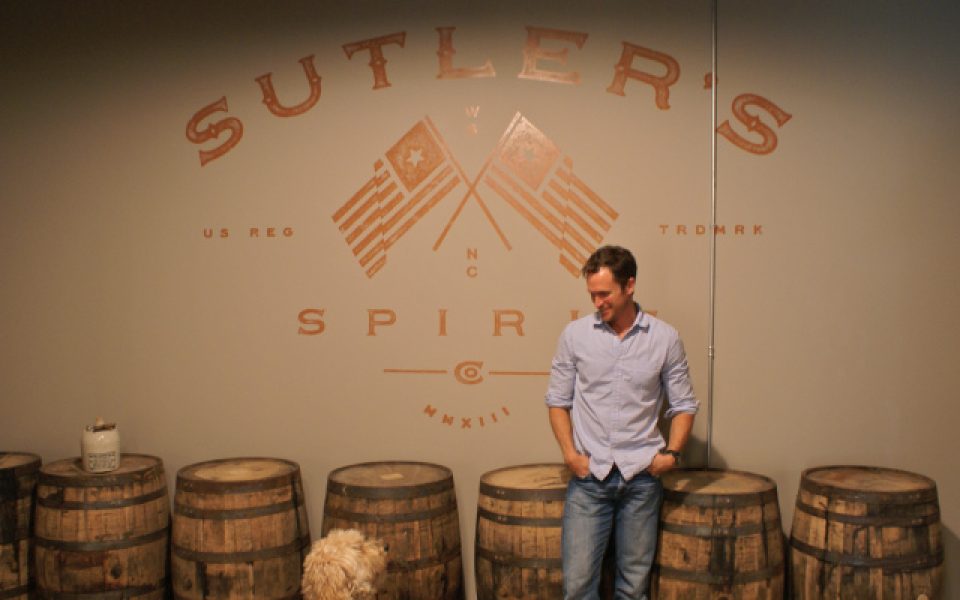Distilleries around the state, including three in the Triad, would be able to sell up to five bottles of liquor from their premises under legislation file by Rep. John Hardister. The bill also gives local governments the option of relaxing liquor sales on Sunday mornings.
The General Assembly cracked the door open in 2015 with a law that allows North Carolina distilleries to sell one bottle of liquor per customer per year on their premises.
A new bill filed by Rep. Jon Hardister, the Guilford County Republican who serves as House whip, lifts the cap to five bottles per customer over a 12-month period, and allows distilleries to provide free tastings — a privilege already enjoyed by breweries and wineries in North Carolina.
“Issues related to alcohol can be sensitive,” Hardister said in an interview. “That’s understandable. I would contend that you can separate the control/safety aspect from the business side of it. As it relates to distilleries, I’m trying to help them better run their businesses and sell their product. It’s going to support the economy and promote tourism.”
Joe Tappe, the distiller at Broad Branch Distillery in Winston-Salem —said the move to relax regulations on the industry would have a significant economic impact. Like many of its competitors, the distillery, which opened in the Big Winston Warehouse on Trade Street in 2015, offers free tours. Visitors come from out of state and Tappe makes the case that the potential for increased sales allows distilleries to make additional capital investments, contribute more tax revenue to local government, and hire additional employees.
There are more distilleries in North Carolina than Kentucky, Tappe said, although the larger distilleries in Kentucky still produce more volume than their North Carolina counterparts. Broad Branch is only one of three distilleries that have launched in the Triad in the past three years, with Sutler’s Spirit Co. in Winston-Salem and Greensboro Distilling Co. also setting up shop.
Hardister, who is philosophically opposed to limiting the number of bottles that distilleries can sell from their premises, said five was an arbitrary number, but the other bill sponsors thought if they went much higher they might run into opposition. Rep. Pricey Harrison, a Democrat from Greensboro, has also signed on to the bill.
Hardister said he is cautiously optimistic that the bill will gain traction. The constituency most threatened by the legislation is the state Alcoholic Beverage Control Commission, which holds a monopoly on liquor sales.
“They do have a lobbyist; they are trying to protect the system as it is now,” Hardister said. “We were at odds on the bill that passed two years ago. They’re also going to be opposing this bill. I spoke to their lobbyist last week. We spoke respectfully, but this is an issue where we disagree.”
The bill also includes a brunch provision that would allow city councils and county commissions to vote on whether to allow alcohol sales by restaurants and other establishments that serve food as early as 10 a.m. on Sundays instead of the current noonday start time.
“Maybe you’re a visitor to the state,” Hardister said. “Maybe you’re staying at a bed and breakfast, spa or country club, and you’d like to have a mimosa before noon. That should be your choice.”
The provision helped attract the support of the powerful NC Restaurant & Lodging Association, which has publicly endorsed the legislation.
Join the First Amendment Society, a membership that goes directly to funding TCB‘s newsroom.
We believe that reporting can save the world.
The TCB First Amendment Society recognizes the vital role of a free, unfettered press with a bundling of local experiences designed to build community, and unique engagements with our newsroom that will help you understand, and shape, local journalism’s critical role in uplifting the people in our cities.
All revenue goes directly into the newsroom as reporters’ salaries and freelance commissions.


Leave a Reply